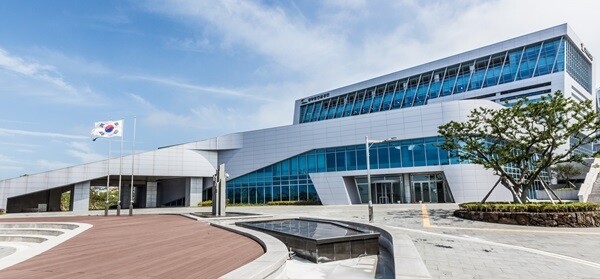hankyoreh
Links to other country sites 다른 나라 사이트 링크
[Editorial] It’s time to discuss reforming S. Korea’s pension plans for government employees and military

Four years from now, the South Korean government’s cash transfers to the pension plans for former government employees and military service members are expected to reach 5.2 trillion won (US$4.36 billion) a year. Practically speaking, compensating for the ballooning shortfall with tax revenue isn’t a sustainable option. It’s time to initiate a discussion about reforming these two pension systems, just like the national pension system.
According to the mid- and long-term plan for the budgetary management of funds that the government submitted to the National Assembly on Sept. 5, government cash transfers for the civil servant pension will be nearly doubling from 1.6 trillion won (US$1.34 billion) this year to 3.3 trillion won (US$2.77 billion) in 2023. This is the result of a massive increase in pension beneficiaries as baby boomers in the civil service (those born between 1955 and 1963) retire en masse.
Government transfers to veterans’ pensions will also be rising from 1.57 trillion won (US$1.32 billion) this year to 1.91 trillion won (US$1.6 billion) in 2023, representing a 21.6% increase. Since the veteran pension has been paying benefits from the time it was established in 1960, it never had a chance to accumulate enough funding, and the plan has been receiving government support since 1973. The veteran pension plan went into the red in 1993, and its accumulated funds ran out in 2001, forcing the government to provide cash infusions since then.
There has been one attempt to reform the civil servant pension by lowering benefits and raising contributions in 2015. But the veteran pension plan has been immune to reform, despite depending upon government support for the past 45 years.
The push to reform the national pension plan, which is expected to hit a deficit in 2042, is unlikely to gain momentum and is susceptible to questions about fairness as long as nothing is being done about the civil servant and veteran pension plans, which are already in a deficit and have been so for quite some time. The government needs to launch a discussion about reforming those pension plans before it’s too late.
Please direct comments or questions to [english@hani.co.kr]

Editorial・opinion
![[Editorial] Silence won’t save Yoon [Editorial] Silence won’t save Yoon](https://flexible.img.hani.co.kr/flexible/normal/500/300/imgdb/original/2024/0701/681719819632087.jpg) [Editorial] Silence won’t save Yoon
[Editorial] Silence won’t save Yoon![[Column] The miscalculations that started the Korean War mustn’t be repeated [Column] The miscalculations that started the Korean War mustn’t be repeated](https://flexible.img.hani.co.kr/flexible/normal/500/300/imgdb/original/2024/0630/9717197068967684.jpg) [Column] The miscalculations that started the Korean War mustn’t be repeated
[Column] The miscalculations that started the Korean War mustn’t be repeated- [Correspondent’s column] China-Europe relations tested once more by EV war
- [Correspondent’s column] Who really created the new ‘axis of evil’?
- [Editorial] Exploiting foreign domestic workers won’t solve Korea’s birth rate problem
- [Column] Kim and Putin’s new world order
- [Editorial] Workplace hazards can be prevented — why weren’t they this time?
- [Editorial] Seoul failed to use diplomacy with Moscow — now it’s resorting to threats
- [Column] Balloons, drones, wiretapping… Yongsan’s got it all!
- [Editorial] It’s time for us all to rethink our approach to North Korea
Most viewed articles
- 1Japan is building a military meant for more than self-defense — and has the US to thank for it
- 2[Editorial] Silence won’t save Yoon
- 3Yoon’s prosecutors are throwing everything at the president’s opponents to see what’ll stick
- 4[Column] The miscalculations that started the Korean War mustn’t be repeated
- 5NewJeans rocks Tokyo Dome as new, younger generation of K-pop fans emerges in Japan
- 6Moscow tells Seoul to rethink ‘confrontational course’
- 7Dreams of a better life brought them to Korea — then a tragic fire tore them apart
- 8Half of South Korea’s conglomerate heirs marry within chaebol community
- 9Moonbin of K-pop group Astro dies at 25
- 10[Column] Balloons, drones, wiretapping… Yongsan’s got it all!